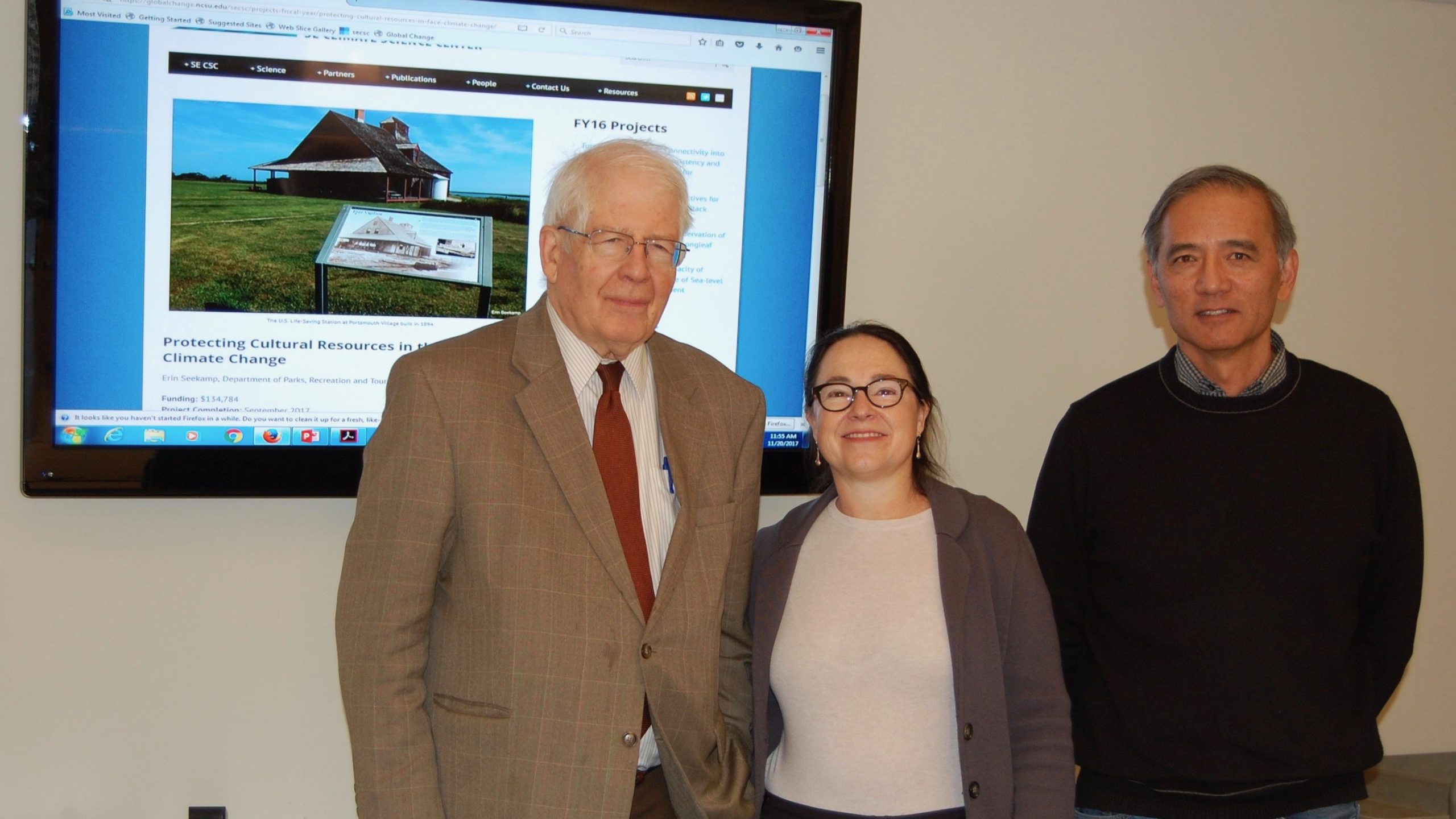NC Congressional Representative Visits Southeast Climate Science Center


U.S. Congressman David Price, who represents the 4th Congressional District of North Carolina, recently visited the Southeast Climate Science Center offices. He met with NCSU and USGS staff, students, and scientists, who briefed Congressman Price about the applied science and capacity building implemented by this federal-university partnership that focuses on adaptive capacity in natural and cultural resources. We described highlights of SE CSC research activities focused especially on North Carolina and southeastern landscapes. Congressman Price has been a supporter of the Climate Science Centers and their mission since they were established by Secretarial Order 3289 in 2008.
One project highlighted for the congressman is focused on Cape Lookout National Seashore, Protecting Cultural Resources in the Face of Climate Change, led by NCSU PI Erin Seekamp and involving SE CSC scientist Mitch Eaton. In this project, researchers have developed a model that integrates the impacts of climate change on cultural resources with the realities of budget constraints, to help the National Park Service make decisions on how to adapt these resources to the future on the coast of North Carolina and elsewhere. The uniqueness and perceived benefits of this project by NPS has resulted in their continued financial support to further develop these concepts, models, and applications for use in other park units around the country.
SE CSC research scientist Adam Terando shared highlights of his work on modeling future patterns of urban sprawl in the Southeast, as part of the Southeast Regional Assessment Project. These urbanization scenarios result in a projected future “Southern megalopolis,” which will increase the likelihood of displacement and fragmentation of natural ecosystems.
Global Change Fellow Larry Long described the Global Change Fellows program and presented details of his graduate research on maintaining urban tree health in the face of changing climate and urbanization, part of SE CSC-funded research project, Consequences of Urbanization and Climate Change on Human and Ecosystem Health, led by NCSU PI Steve Frank. He is evaluating how urban forest fragments buffer the effects of heat and drought for trees growing within the hottest parts of cities, assessing the ecological and economic significance of urban forest fragments for maintaining urban tree health. Insight gained from this novel research perspective will help inform future urban planning decisions for promoting tree health and human well-being.
- Categories: